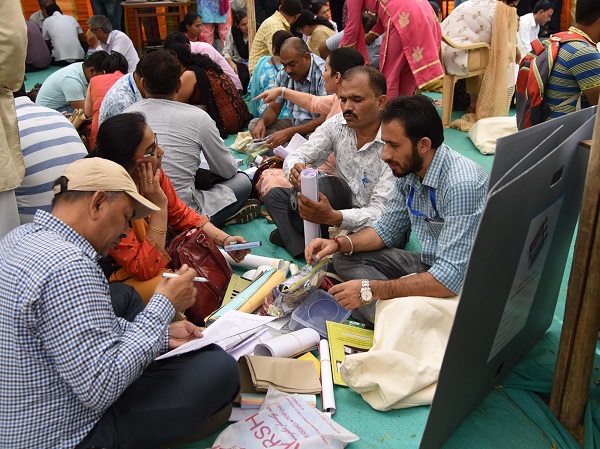
New Delhi, Delhi, commonly called the seat of power, is not only the centre of governance, but it also settles which political party will rule from New Delhi. Historically, with just seven Lok Sabha seats, Delhi has been a bellwether. The party, which won the most seats in the capital, went on to rule the country. Delhi votes on May 12.
The Congress suffered a major loss in the vote share in Delhi in 2014 Lok Sabha election, a loss of 42 per cent of the votes polled, as compared to 2009 parliamentary polls, where it won all seven seats.
Here are some facts:
1. Prominent candidates in the poll fray: veteran Congress leader Sheila Dikshit, who has played a crucial in the development of the city; Olympian boxer Vijender Singh, who has also won international boxing events; Union minister Harsh Vardhan, Atishi from AAP, an Oxford graduate who is often credited with the makeover of Delhi government schools; and BJP’s cricketer-turned-politician Gautam Gambhir, who was a brute batsman and often expressed opinion on several national security issues.
2. East Delhi constituency: In the past, Congress has won the seat six times — H.K.L. Bhagat four times and Sandeep Dikshit twice.
The BJP has won the seat six times including Lal Bihari Tiwari’s hat-trick. With two newcomers, Gautam Gambhir and Atishi, often reckoned as political greenhorns, and in the light of their recent public bickering, East Delhi seems to be the biggest political battle out of the seven Lok Sabha constituencies in Delhi.
3. Delhi is the decider: Delhi is not only the seat of power, but it is also the place that decides who will hold power and rule from New Delhi. In the past few elections – Lok Sabha and assembly – Delhi has oscillated from one political corner to the other, and it also reflects the mood of the nation. Since 1998, Delhi has voted for the party, which eventually, in coalition or on its own, formed the government at the Centre.
4. West Delhi constituency: Of the seven Lok Sabha seats in Delhi, West Delhi Lok Sabha seat has got it right in the last 11 parliamentary elections. Since 1977, the party which won this constituency, had formed the government at the Centre. This seat seems to gauge the voter sentiment of the country. Only Valsad Lok Sabha seat in Gujarat shares such a stature among all the 542 constituencies going to the polls in the country.
5. Delhi statehood: Since 2015 Assembly polls when the Aam Aadmi Party swept to power with 67 out of 70 seats, it will be the first test of popularity of AAP’s plank of full statehood for Delhi.
6. Union Territory: All the Union Territories of India have a Lok Sabha seat each, except for Delhi which has seven. Delhi formally became the National Capital Territory of Delhi, after the Constitution was amended in 1991. BJP came to power in 1993, and the party’s Madan Lal Khurana became CM.
7. Only one SC seat: North West Delhi is the only parliamentary seat of Delhi that is reserved for a Scheduled Caste (SC) candidate. Delhi has 12 assembly seats reserved for SCs, none for the STs.








